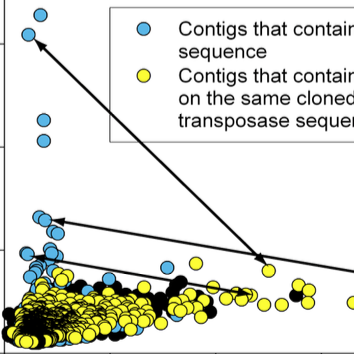Link to online paper: https://dx.plos.org/10.1371/journal.pone.0013530
Abstract
Background: The most widespread bacteria in oxic zones of carbonate chimneys at the serpentinite-hosted Lost City hydrothermal field, Mid-Atlantic Ridge, belong to the Thiomicrospira group of sulfur-oxidizing chemolithoautotrophs. It is unclear why Thiomicrospira-like organisms thrive in these chimneys considering that Lost City hydrothermal fluids are notably lacking in hydrogen sulfide and carbon dioxide. Methodology/Principal Findings: Here we describe metagenomic sequences obtained from a Lost City carbonate chimney that are highly similar to the genome of Thiomicrospira crunogena XCL-2, an isolate from a basalt-hosted hydrothermal vent in the Pacific Ocean. Even though T. crunogena and Lost City Thiomicrospira inhabit different types of hydrothermal systems in different oceans, their genomic contents are highly similar. For example, sequences encoding the sulfur oxidation and carbon fixation pathways (including a carbon concentration mechanism) of T. crunogena are also present in the Lost City metagenome. Comparative genomic analyses also revealed substantial genomic changes that must have occurred since the divergence of the two lineages, including large genomic rearrangements, gene fusion events, a prophage insertion, and transposase activity. Conclusions/Significance: Our results show significant genomic similarity between Thiomicrospira organisms inhabiting different kinds of hydrothermal systems in different oceans, suggesting that these organisms are widespread and highly adaptable. These data also indicate genomic processes potentially associated with the adaptation of these lineages into strikingly different habitats.
